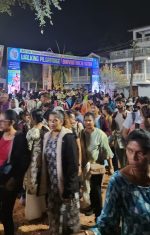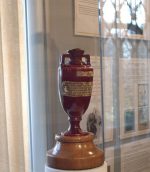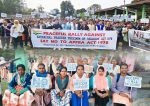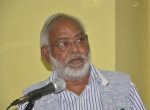By Matters India Reporter
Bhopal, Nov 16, 2019: Abdul Jabbar, who fought to get justice for of the victims of the world’s worst industrial disasters, died after prolonged illness on November 14. He was 61.
The death occurred just 18 days before the 35th anniversary of the Bhopal gas tragedy.
Jabbar survived the tragedy that occurred on the intervening night of december 2-3, 1984, that killed between 25,000 to 50,000 people. He later became an activist for hundreds of thousands of survivors.
He suffered from multiple health issues related to the gas tragedy, including blood pressure, and diabetes and for the last six months gangrene.
Jabbar was an honest and unassuming activist who remained poor, a journalist who has been reporting the victims’ struggles to get justice, told Matters India.
Jabbar worked for livelihood of thousands of survivors but had little resources and struggled to fund his treatment. Madhya Pradesh’s former Chief Minister Digvijaya Singh promised him treatment in Mumbai when he visited him in the hospital on November 14. Later current Chief Minister Kamal Nath too announced to bear Jabbar’s treatment but the activist died by evening.
As heartfelt messages began to pour in from all quarters, the survivors remembered him as a crusader who dedicated his life fighting victims’ justice.
Known to residents of Old city as ‘Jabbar Bhai,’ he was a household name in the gas tragedy affected areas for more than three decades.
He was 27 and working as digger of bore wells when the catastrophe struck the Madhya Pradesh capital. As other residents of the city, Jabbar was asleep, when Methyl IsoCyante gas leaked from the Union Carbide plant.
After sensing the red chilli-like odor of the gas, Jabbar swung into action taking his mother to safety and rode around 40 km to Obaidullaganj. After leaving his mother at Rajendra Nagar area, he returned to his colony — just 1.5 km away from the plant — to fulfill his duty towards local residents.
Jabbar, however, lost his mother and elder brother on the fateful night.
He lost almost 50 percent vision and had serious lung ailments due to the gas leak.
He, however, took up the fight against Union Carbide in the courts for adequate compensation for around 500,000 survivors and 25,000 who died (as per official records).
In 1987, he had set up Bhopal Gas Peedit Mahila Udyog Sangthan, a survivors’ organization demanding sustenance allowance and compensation for the victims, especially widows of the gas tragedy victims. In his lifetime, he imparted vocational training to around 5,000 survivor women so that they could earn a livelihood for their families.
Apart from leading several agitations o in Bhopal, he organized protest marches in the national capital, making quite a stir in Parliament.
After the compensation was doled out in 1989, Jabbar started focusing on skill development of those who were left with physical ailments after the tragedy. In all these years, Jabbar helped more than 5,000 women get jobs through training imparted at his Swabhiman Kendra (an economic rehabilitation center) in Old city.
Jabbar always rued that there was no proper compensation, medical rehabilitation, economic rehabilitation, or environmental rehabilitation after 1984 incident. But as he often said, one day we will get justice.










